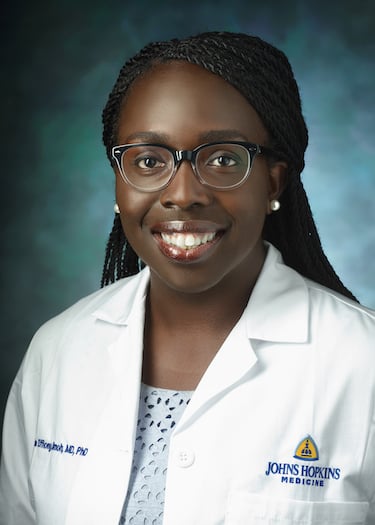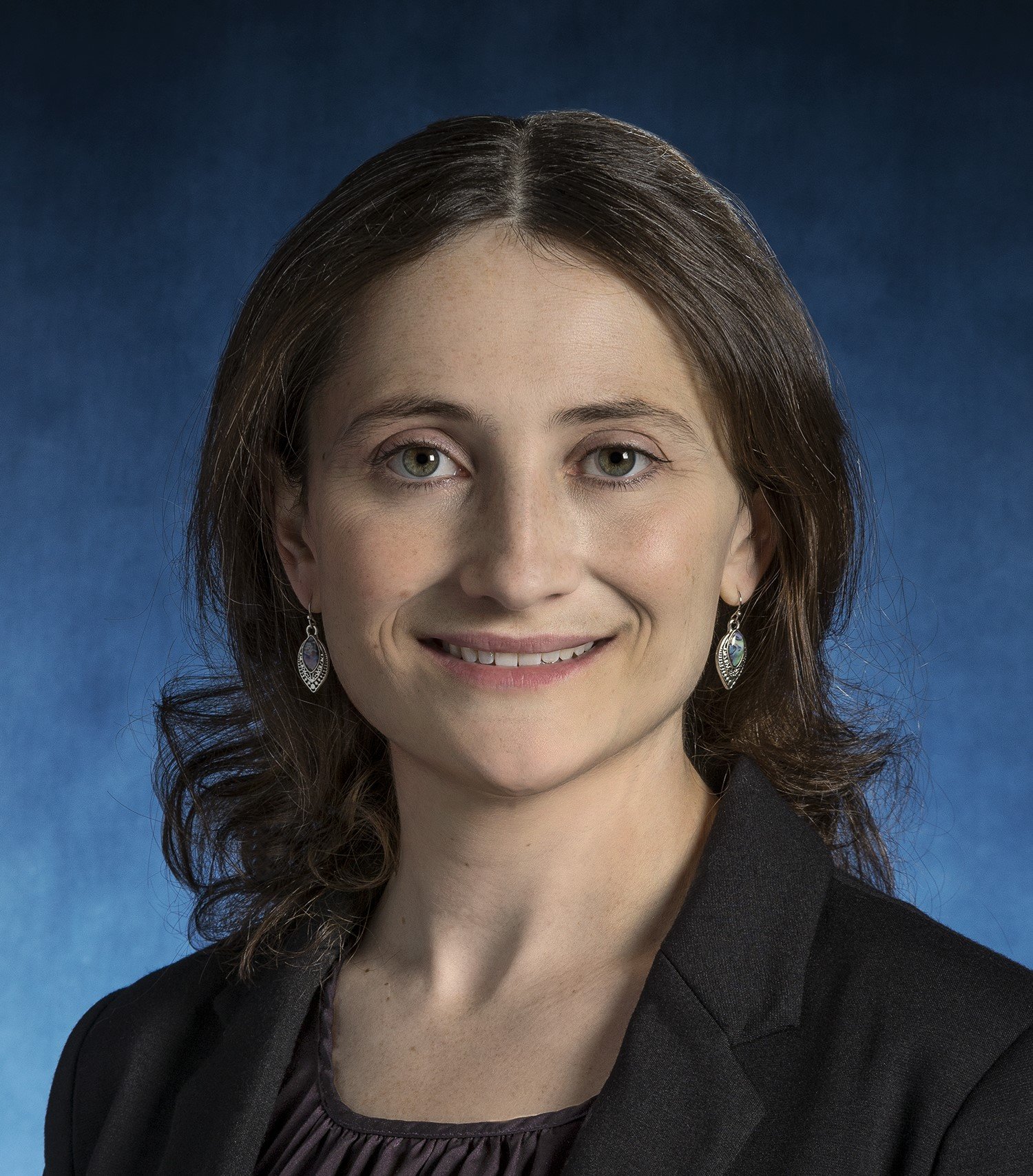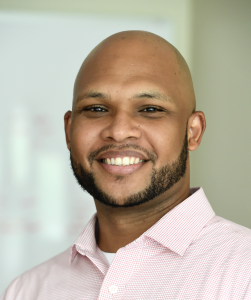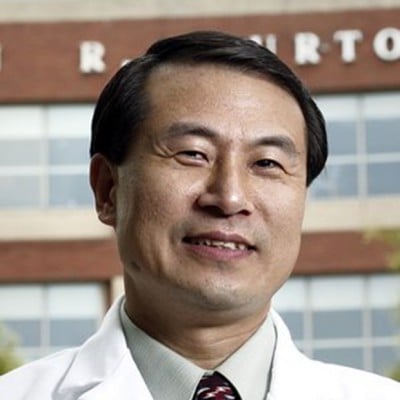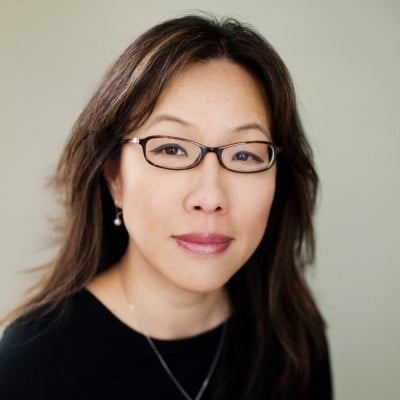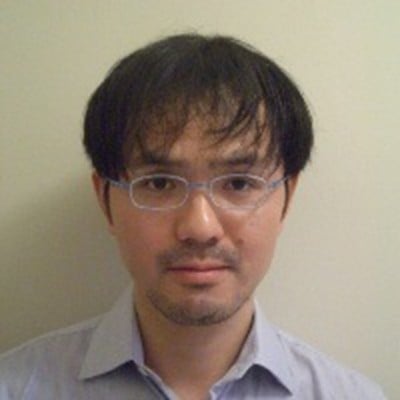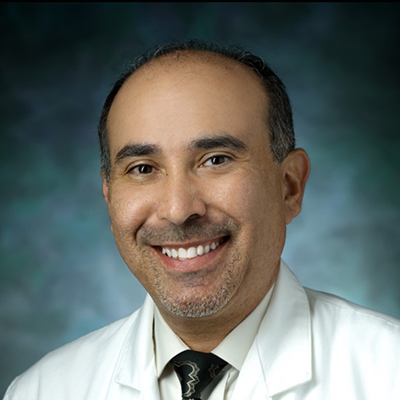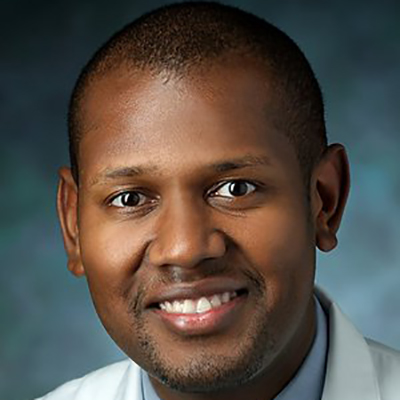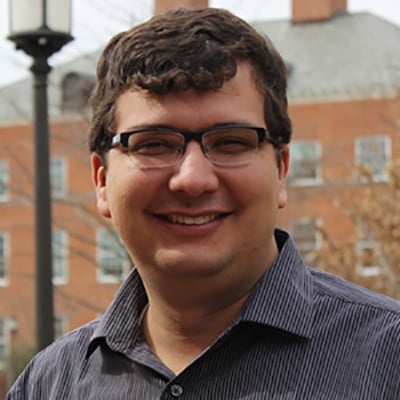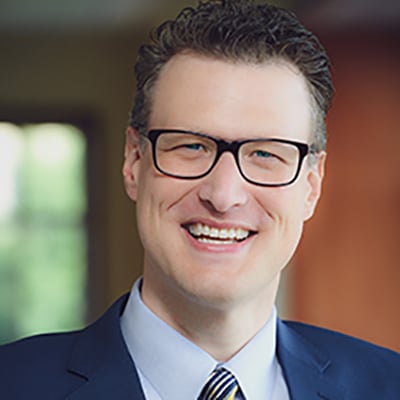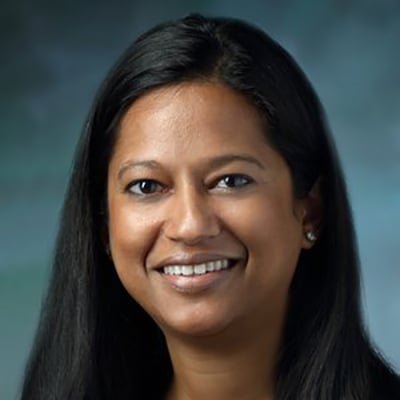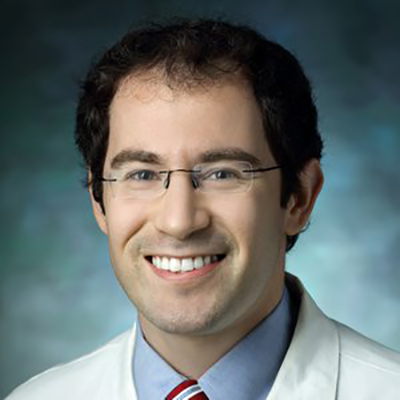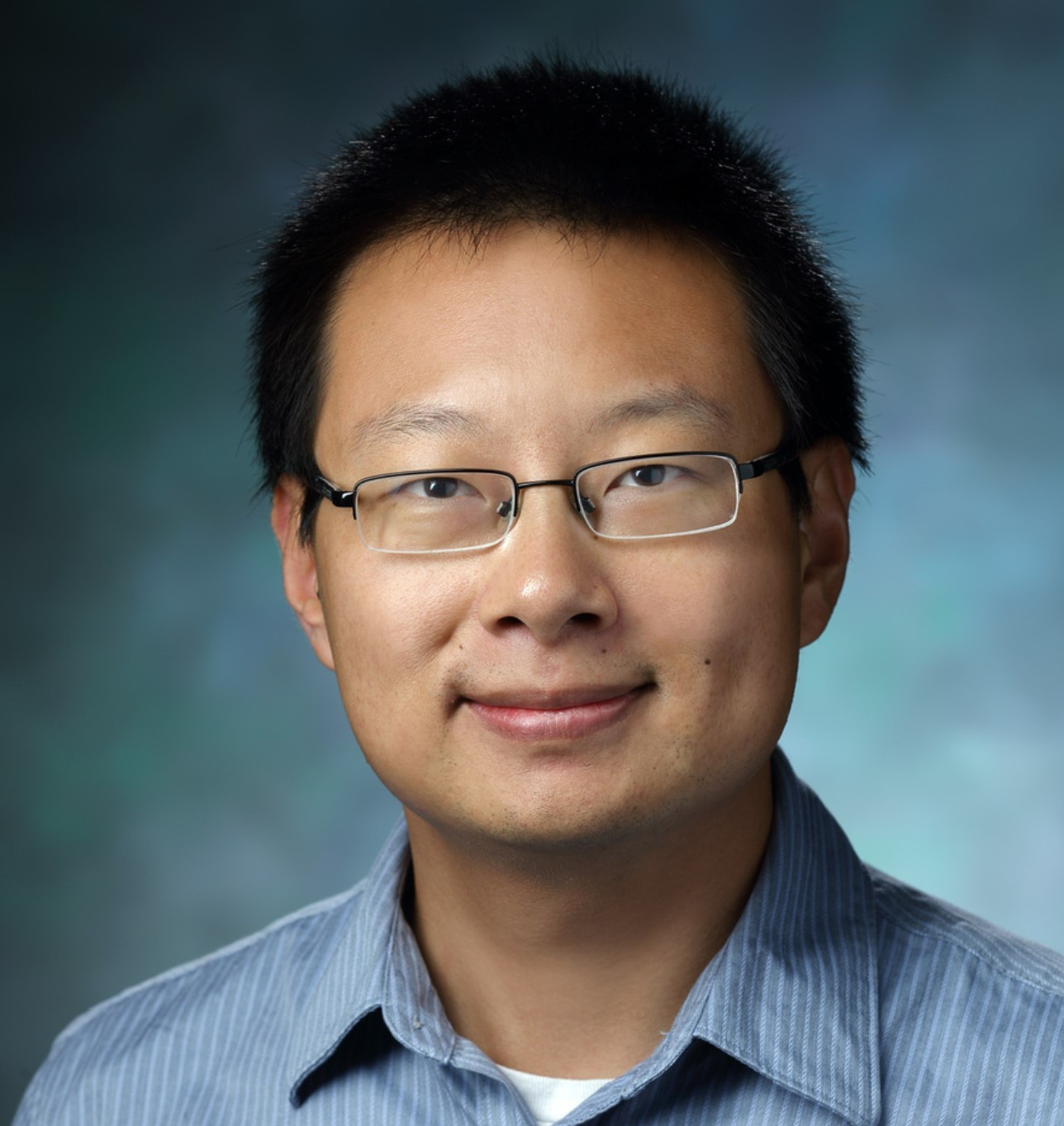About
Each year, the Human Aging Project will work to make research funding available for new HAP scholars according to the availability of funding. Awards will be offered through a call for proposals and an internal application process that targets a specific area of aging research. Applicants targeted are mid-level career faculty in the fields of engineering, basic biology, bioengineering, and clinical translation that wish to develop a project and/or skill set related to aging. Special consideration will also be given to those who work in these named disciplines that focus on health disparities and ways to overcome these disparities. A two page letter of intent that includes background and specific aims, brief approach, and budget will be requested initially. Send programmatic inquiries to awiker@jh.edu.
HAP Scholars for 2025
Mfon Umoh, M.D., Ph.D., is a Sarah Miller Coulson Center for Innovative Medicine (CIM) Human Aging Project (HAP) scholar. Dr. Umoh will be an Assistant professor (starting July 2025) in the Division of Geriatric Medicine and Gerontology with joint appointments in the Departments of Neurology and Psychiatry at the Johns Hopkins University School of Medicine. Dr. Umoh’s clinical work, research, and teaching centers on improving cognitive outcomes for older adults. Her research focuses on examining biological and social contextual factors that contribute to poor cognitive outcomes for older adults. Her current projects harness the strength of epidemiological data to inform cognitive health outcomes with the goal of influencing clinical care and interventions by targeting modifiable risk factors for cognitive decline and dementia. She is particularly interested in the intersection of delirium and long-term cognitive outcomes in individuals with and without dementia. She also studies the role of social connections in promoting cognitive health and resilience in older adults.
HAP Scholars for 2024
Meaghan Morris, MD, PhD, is the S. Anne and C. Michael Armstrong CIM/HAP Scholar. She is an Assistant Professor of Pathology and Neuropathology. She is advancing research on the spread of tau proteins in the brain using state-of-the-art proteomic and imaging techniques, focusing on inflammation and mitochondrial bioenergetics. Her work aims to reveal new targets for preventing cognitive decline and Alzheimer’s disease.
Jude M. Phillip, PhD, is the Salisbury Family HAP/CIM Scholar. He is an Assistant Professor of Biomedical Engineering, Chemical and Biomolecular Engineering and Oncology, as well as a Core Member of the Institute for Nanobiotechnology. Dr. Phillip is exploring senescence at a single-cell level. His lab investigates the dual roles of senescence in aging and disease, aiming to pinpoint molecular drivers of “bad” senescence, ultimately guiding targeted treatments that may counteract age-related inflammation and disease.
HAP Scholars for 2022
Sean X. Leng, MD, PhD, is the 2022 Salisbury Family CIM/HAP Scholar. Dr. Leng is a Geriatrician and an Immunobiologist and a Professor of Geriatric Medicine, Molecular Microbiology and Immunology the Schools of Medicine and Public Health. He has been in the forefront of discovery related to aging-related immune remodeling and how it influences influenza and COVID-19 infections, and how it impacts immune system vaccination response in older adults. He has previously established a longitudinal study of the effectiveness of influenza vaccine in adults over age 75, as well as a new COVID-19 vaccination study. He recently secured a large NIH center grant to study age-related changes in immune mechanisms that impact protection against influenza in older adults. This and other funding recently allowed Dr. Leng to establish the Johns Hopkins Center on Aging and Immune Remodeling (JH CAIR). Dr. Leng also leads Hopkins’ effort to promote the development of Geriatric Medicine in China, and serves as President of Milstein Medical Asian American Partnership (MMAAP) Foundation. The MMAAP focuses on the the development of senior healthcare and aging research in China and greater Asia.
Esther Oh, MD is the 2022 Sarah Miller Coulson CIM/HAP Scholar. Dr. Oh is an Associate Professor in the Division of Geriatric Medicine and Gerontology with joint appointments in the Departments of Psychiatry and Behavioral Sciences and Pathology at the Johns Hopkins University School of Medicine. She is currently the co-director of the Johns Hopkins Memory and Alzheimer’s Treatment Center. Oh’s research, clinical work and educational activities seek to foster targeted and personalized treatment, care and cure for patients with memory disorders with a focus on interdisciplinary and team science approaches. This work includes the development of biomarkers for early detection of AD and to predict postoperative delirium, delirium and cognitive changes after surgery. Other areas of focus include long-term cognitive changes associated with COVID-19; sensory changes associated with AD; and cognitive impairment in the context of multimorbidities and polypharmacy. As part of her engagement in the HAP Scholar program, she will continue important work on a program to detect delirium risk and provide physicians with delirium interventions for vulnerable patients based on machine-learning algorithms.
Hiromi Sesaki, Ph.D., is the 2022 Ethan and Karen Leder CIM/HAP Scholar. Dr. Sesaki is a professor in the Department of Cell Biology at Johns Hopkins University School of Medicine. His laboratory studies mitochrondria, the intracellular energy producers found in most cells. More specifically, he studies mitochondrial fusion and division and mitophagy, an intracellular recycling process thought to be dysregulated with increasing age. Overall, these dynamic mitochondrial processes integrate into major quality control mechanisms that removes mitochrondrial damage and ensures mitochondrial health and robust energy production. As part of his HAP scholars awards, he will investigate how aging influences the mitochondrial quality control mechanism and work closely with other HAP investigators to translate his work into clinical uses related to aging and energy expenditure.
HAP Scholars for 2021
Peter Abadir, M.D., is the 2021 Salisbury Family CIM/HAP Scholar. He is an Associate Professor of Geriatric Medicine and Gerontology at the Johns Hopkins University School of Medicine, with a joint appointment in the School of Engineering. His area of clinical expertise is geriatric medicine. Dr. Abadir’s research interests include changes in the renin angiotensin aldosterone system with aging, and the development of new technologies that will improve the health and well-being of older adults. He has been recognized by the Hopkins Department of Medicine with the W. Leigh Thompson Excellence in Research Award, is the co-director of the new Gerotech Incubator Program, and is the co-principle investigator of the Johns Hopkins Artificial Intelligence and Technology Collaboratory.
Thomas Cudjoe, M.D., M.P.H. is the 2021 Caryl & George Bernstein CIM/HAP Scholar. He is an Assistant Professor of Geriatric Medicine and Gerontology and is investigating a relationship between social isolation and inflammatory biomarkers. His recent findings from a large nationally represented study indicate that social isolation has biological influences and could lead to poor health outcomes such as dementia and premature mortality — a finding of particular import since 1 in 4 community dwelling adults over age 65 are considered socially isolated. Cudjoe’s work points to the importance of developing programs and interventions to address isolation among the aged.
Najim Dehak, Ph.D. is the 2021 Whiting School of Engineering/HAP scholar. He is an Associate Professor of Electrical and Computer Engineering and studies machine learning approaches applied to speech processing, audio classification, and health applications. He is a leading developer of the I-vector representation for speaker recognition, which has evolved to become one of the most known speech representations in the field. Prior to joining Johns Hopkins, he was a research scientist in the Spoken Language Systems Group at the MIT Computer Science and Artificial Intelligence Laboratory. Dehak received his PhD from the School of Advanced Technology, Montreal in 2009. He is presently a leading investigator on the Johns Hopkins Artificial Intelligence and Technology Collaboratory Pilot Core, and a co-leader of the HAP Gerotech program.
Bryan R. Hansen, PhD, MSN, RN, is the 2021 School of Nursing/HAP Scholar. He is an Assistant Professor at Johns Hopkins School of Nursing (JHSON) and Principal Faculty of the Center for Innovative Care in Aging. He has been a passionate advocate for the promotion of optimum mental health and well-being of older adults and their families through teaching, practice, and research. He has also practiced as a psychiatric nurse, with a special focus on proactive approaches to preventing and managing aggressive behaviors in inpatient settings. He currently practices as an adult health clinical nurse specialist and collaborates inter-professionally across several areas of scholarly focus areas, including delirium, dementia, inter-professional education and practice, palliative care, and harm reduction. He will co-lead the Gerotech Incubator Program, where he will help facilitate the development of new technologies and ideas that will improve care for older adults.
Rasika Mathias, Sc.D., is the 2021 Sarah Miller Coulson CIM/HAP Scholar. She is a Professor and Genetic Epidemiologist at Johns Hopkins Schools of Medicine and Public Health who is dedicated to ending health disparities by broadening genetics studies to include diverse populations. She has a long history of important genetic discovery specific to asthma and other allergic conditions. For her HAP scholarship, she will focus on identification of genes that will help to better predict health risks among aging older adults with an emphasis on under-represented minority groups. Toward that end, she is revolutionizing the study of telomeres: the protective caps on the ends of our chromosomes that prevent our DNA from deteriorating with increasing age through novel genetics approaches. She is also applying these findings to many aging-related conditions, including frailty and cognitive decline.
Alexander Pantelyat, M.D. is the Alafouzos Family 2021 CIM/HAP Scholar. He is an Associate Professor of Neurology at Johns Hopkins who focuses on atypical Parkinson’s Disease. He is also a talented violinist, who with his HAP scholarship aims to make music and rhythm an integral part of treating aging-related illnesses. His studies have shown that interventions such as singing can improve mood, speech, and swallowing in patients with Parkinson’s disease. More recently, in a pilot study of patients with severe (atypical) PD and poor gait, Pantelyat showed that walking to a march-like beat resulted in improved gait and balance — benefits that carried over even after the music stopped. As a HAP scholar, he is working now with an industry sponsor to develop a wearable device — a sensor on the shoe linked to a phone app with a playlist of favorite tunes — that will adjust the music’s tempo to the wearer’s gait. The goal of this program is to give patients with Parkinson’s and other aging-related conditions the opportunity to walk their way to better health at home.
Qinchuan Wang, Ph.D., is the Ethan and Karen Leder CIM HAP 2021 Scholar. Dr. Wang is an Assistant Professor in the Division of Cardiology in the Department of Medicine at Johns Hopkins. Using new molecular tools and genetically engineered animal models, he has a long focus on the role that oxidated CaMKII plays in cardiovascular disease. Given that its oxidation is highly related to functional decline, Dr. Wang will pursue additional studies of CaMkll in skeletal muscles and work to determine a role for oxidative stress in aging related functional declines as part of his HAP scholarship. He will work closely with clinical translational experts within the HAP program to identify and develop clinical uses for his discoveries.

